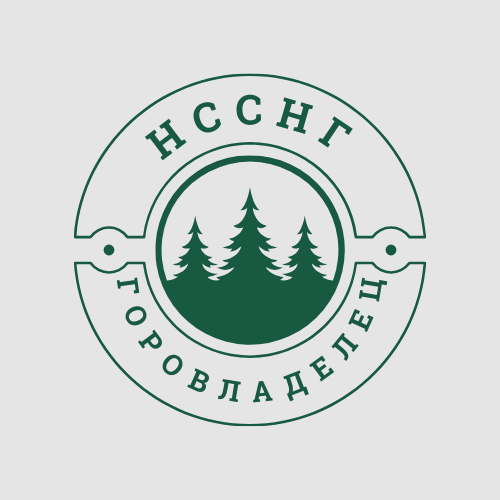What is Laurus Network?
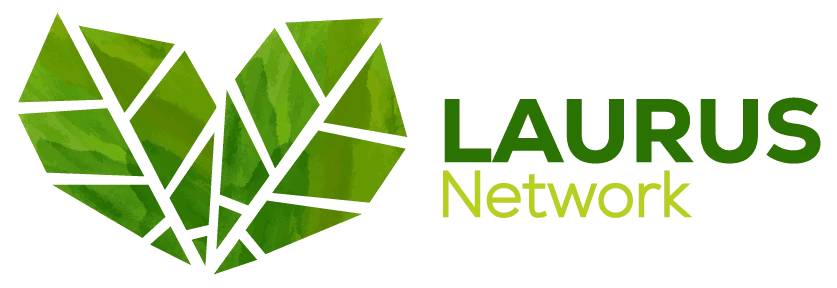
Laurus is a European network created by the SMURF – Forest Owners’ Project, funded by Horizon Europe (contract no. 101135516)
Its aim is to support the technical staff of European forest owners’ organisations through innovation, training and exchange of experience.
Key benefits for members
1. Expert training
Webinars and online workshops with practical examples from forest management, including the first webinar on “Voluntary carbon markets and land use projects in Europe”, scheduled for 17 September 2025.
Acquisition of practical skills and support in decision-making.
2. Innovation and business opportunities
Presentation of new business and forest management models that optimize profitability and sustainability.
Access to approaches such as Closer to Nature Silviculture and opportunities to enter robust systems such as carbon payments (PES) based on the SMURF model
3. Network and knowledge exchange
Communication with practitioners and managers who have already implemented these approaches.
Formation of peer groups and interaction with a consortium of public, academic and private organizations
Why is it important for small forest holdings?
The network addresses key challenges: parcelization of ownership, lack of access to new practices and regulations, limited business models. It also offers tools to power the European value ecosystem, including opportunities in carbon markets.
How do you get involved?
Registration is done online - free of charge, but access is confirmed by the SMURF consortium based on the information provided
After approval, you get access to a private portal with exclusive resources.
Latest news and events
The 1st European Small Forestry Conference took place from 20 to 22 May 2025 in Rome, organised by SMURF with the support of FAO and Cesefor – Laurus was officially launched.
Summary
Laurus is a free, vetted network specifically designed to support technical experts from forest owner associations in Europe. Through webinars, innovative solutions and valuable contacts, it answers questions such as:
How to make small forest holdings more profitable and sustainable?
Where to find help with new forest practices and regulations?
What new business opportunities can we offer?
If you represent such an organisation and want to stay up to date with key innovations and opportunities, Laurus is the place for you.
Laurus е европейска мрежа, създадена от проекта SMURF – Forest Owners’ Project, финансиран чрез Horizon Europe (договор № 101135516)
ерти на асоциации за собственици на гори в Европа. Чрез уебинари, иновативни решения и ценни контакти тя дава отговори на въпроси като:
Как да направим малките горски стопанства по‑рентабилни и устойчиви?
Къде да намерим помощ при нови горски практики и регулации?
Какви нови бизнес възможности можем да предложим?
Ако представлявате такава организация и искате да сте в крак с ключовите иновации и възможности, Laurus е мястото за вас.
SMURF project website https://www.smurfproject.eu/.Funded by EU ![]()
![]()
![]()
![]()
![]() #smurfproject #SmallForestHoldings #forestry #forestowners #profitability #smallforestowners #foresteufuture #forestmanagement #sustainability #forestnews #cascadefunding #closetonaturesilviculture
#smurfproject #SmallForestHoldings #forestry #forestowners #profitability #smallforestowners #foresteufuture #forestmanagement #sustainability #forestnews #cascadefunding #closetonaturesilviculture
On the fight against bark beetles
A serious challenge for forest owners and foresters in Bulgaria is the fight against insect pests. Over the past 5-10 years, great damage has been caused by various types of bark beetles.
Mainly, this is the typographer - Ips typographus on spruce, the apex bark beetle - Ips acuminatus Gyll on white pine and the six-tooth bark beetle - Ips sexdentatus Boern, which occur on both tree species.
The attacks occur in the spring, when the adults attack the targeted trees. There they lay their eggs and begin to feed on the bark of the tree, thus depriving it of the opportunity to feed and absorb water. During the months of July and August, the already dying trees begin to show. In hot summers, two generations of bark beetles can develop. The affected trees change the color of their needles and they themselves begin to fall off. This process at high summer temperatures can take place within 2 weeks.
The main difficulty in combating these pests is that by the time damaged trees are noticed, they are already doomed to death, and the adult bark beetles attack new trees. This makes combating them extremely laborious and not easy, and the damage caused can be extremely large.
One of the main options for combating bark beetles is to set up pheromone traps and thus capture male individuals. One pheromone trap covers an area of 1 ha. and it is necessary to regularly remove the captured individuals and clean the trap itself. Covering an entire forest massif with pheromone traps is a rather expensive and difficult procedure.
Another frequently practiced option is to remove the attacked trees from the forest as quickly as possible, to process the wood and thus destroy the pests themselves. To apply this method, each forest owner must have an approved plan-extract from the Regional Forestry Directorate, for forests that are not forested, or a prescription for sanitary felling must be issued by the Regional Forestry Directorate or Forest Protection Station. It determines the amount of wood to be obtained and the deadline for the felling. Then, the necessary "Leaving Permit" must be issued and the removal of damaged trees must begin. Sometimes the procedure itself is quite cumbersome and takes up to 3-4 weeks. This reduces the effect of removing bark beetles.
As a preventive measure, you can avoid storing freshly cut wood in the forest for a long period, especially in spring, and apply regular field inspections, and after detecting affected trees, they must be removed as quickly as possible.
SMURF project website https://www.smurfproject.eu/.Funded by EU #smurfproject #SmallForestHoldings #forestry #forestowners #profitability #smallforestowners #foresteufuture #forestmanagement #sustainability #forestnews #cascadefunding #closetonaturesilviculture
Memorandum of Understanding and Cooperation
National Association of Owners of Non-State Forests "Gorovladelets" is a non-profit association that carries out its activities in the protection of the interests of forest owners.
To achieve its goals, the Association works together with government agencies and other non-governmental organizations. On this occasion, a MEMORANDUM OF UNDERSTANDING AND COOPERATION was signed between the National Association of Owners of Non-State Forests "Gorovladelets" and the Executive Agency for Forests to promote the bioeconomy in the Republic of Bulgaria.
Considering the need and understanding the importance of using an integrated approach to the development of the bioeconomy
and
Using EU policies in this area, including the five objectives defined by the EU Bioeconomy Strategy for: ensuring food and nutrition security; sustainable management of natural resources; mitigating and adapting to climate change; reducing dependence on non-renewable resources; and strengthening European competitiveness and job creation
and
desiring to support the development of the bioeconomy and the preparation of a Roadmap and a National Strategy for the Bioeconomy in Bulgaria, to ensure food security, production of bioenergy from renewable raw materials and specifically energy from biomass, protection of biodiversity and the environment, protection of climate change and adaptation to it, improvement and competitiveness of Bulgaria and in order to address these challenges which require major social, economic, expert and political efforts, this Memorandum has been concluded.
Subject of the Memorandum
The Memorandum of Understanding is concluded in implementation of the project "Supporting the countries of Central and Eastern Europe in developing strategies and plans for the bioeconomy" (CEE2ACT), as the parties have agreed on the following.
To cooperate in promoting the development of the bioeconomy in the Republic of Bulgaria, building knowledge and capacity among stakeholders to develop bioeconomy strategies and action plans.
To participate in the formulation of national policy related to the bioeconomy, including participation in the development of a national strategy, action plan, roadmap, etc.
This memorandum outlines the opportunities of the parties to share information and experience in the preparation and implementation of national, sectoral and regional bioeconomy strategies, studying foreign experience and good practices in the field of the bioeconomy.
Improving communication and interaction between stakeholders in the field of the bioeconomy, including improving cooperation between the administration, business and the scientific and research sector.
Developing the potential of the bioeconomy at national, sectoral and regional levels.
Continuously attracting new stakeholders in the field through meetings, consultations, exchange of experience and creative methods for solving problems.
Objectives and forms of cooperation
Preparation of a roadmap with a Vision and strategic goals/priorities, which will serve as a basis for developing a National Strategy for the Development of the Bioeconomy in Bulgaria
Work in general or thematic working groups on specific topics related to refining the strategic goals identified in the roadmap.
Sharing experience and good practices in developing strategies.
Raising awareness and engagement of stakeholders.
Providing consultations.
Jointly organizing, conducting and participating in various forums, conferences, seminars, etc. events to raise awareness and knowledge in the field of bioeconomy.
Implementing media and public campaigns to achieve common goals.
This memorandum aims to establish mutual cooperation and trust between the parties.
SMURF project website https://www.smurfproject.eu/.Funded by EU #smurfproject #SmallForestHoldings #forestry #forestowners #profitability #smallforestowners #foresteufuture #forestmanagement #sustainability #forestnews #cascadefunding #closetonaturesilviculture
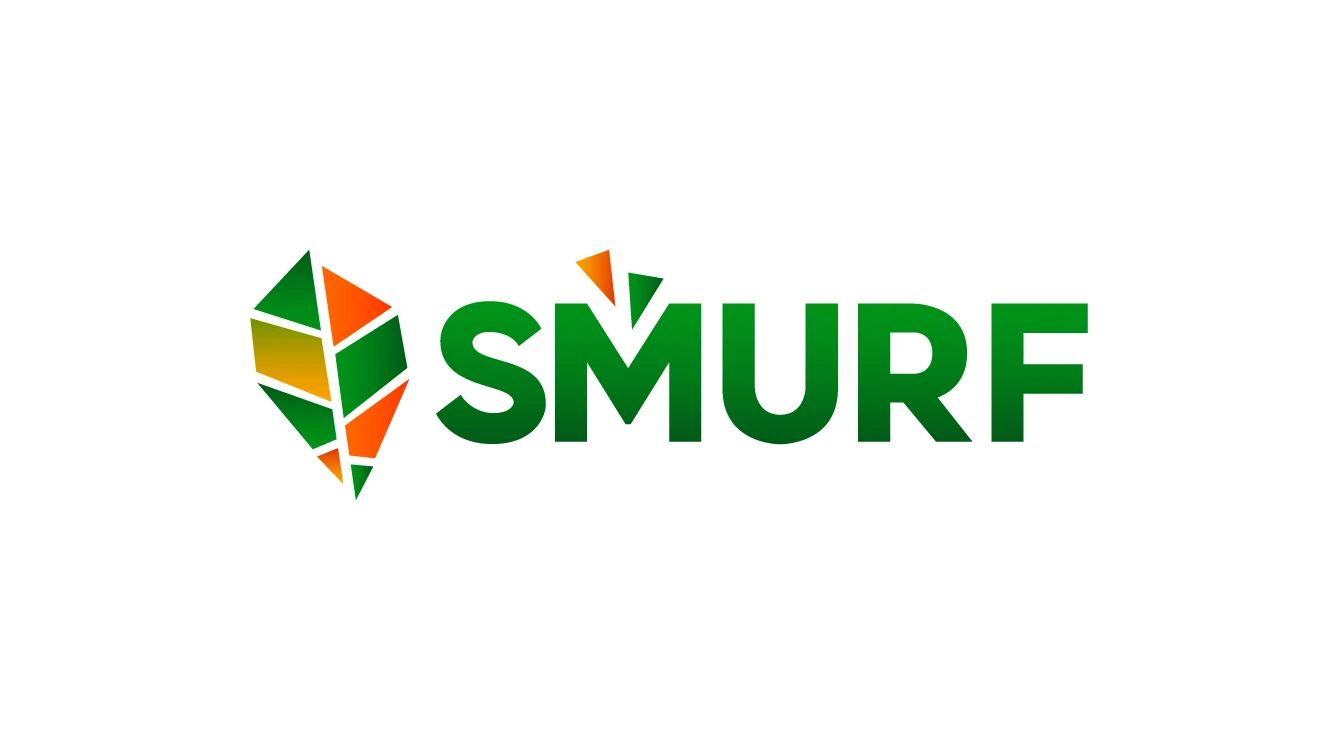
Фрагментацията на горите – проблем на европейско ниво
Проблемът с раздробяването на собствеността в горите не е от последните няколко десетилетия. Прекаленото раздробяване на горските имоти води до повишаване на броя и площта на безстопанствените гори, гори които са изоставени. Оставени без грижи горите стават жертва на горски пожари, нападения от насекоми, ветрове и снегове.
Фрагментацията е процес, при който се увеличава броя на собствениците на единица площ и съответно се намалява размера на собствеността. В резултат на този процес се стига до положението, когато собствеността е толкова малка, че не представлява интерес за самия собственик.
Колкото една горска площ е по-малка икономическата и стойност пада и това кара собствениците на гори под един, два хектара да ги изоставят и да не се грижат за собствеността си. В България, а и в Европа за горските имоти се прилагат редица рестрикции, които с годините увеличават своята тежест. Това превръща собствеността на гори в една от най-нежеланите собствености.
Не са за подценяване и тенденциите на мигриране на населението към големите градове, далече от селските и планинските райони. Горите се изоставят поради физическа невъзможност да се стопанисват от разстояние, липса на желание от собствениците, заради непознаване на тази материя и не на последно място голяма част от стопаните просто не знаят, че са наследили дадена гора след смъртта на някоя баба, дядо или друг роднина.
В много от случаите стойността на гората е в пъти по малка от стойността на сделката с такъв тип имоти, без значение дали ще е покупко – продажба, дарение или друга форма на сделка. Особено голям е проблемът с гори в съсобственост. Такива са всички горовладелски кооперации, сдружения и ревири. Юридическата практиката е сделката да се оформя във всички кадастрални единици, обхващащи кооперацията, и това прави нотариалният акт ненужно и изключително дълъг и скъп.
При липсата на грижи за една гора страдат първо самата гора и нейните обитатели. След това губят и самият собственик и цялото общество. Губи и държавата от не внесени данъци при стопанска дейност.
Когато една гора е оставена без стопанин тя е изложена на много по-голям риск от пожари, при нападение от насекоми няма, кой да се противопостави и тя по – лесно може да бъде поразена и унищожена. Често става фокус за развитие и разпространение на вредители.
При земеделските имоти активна е тенденцията на окрупняване – обединяване на имоти от инвеститори с цел по-лесна и доходоносна обработка. В горите това съвсем не е така.
В заключение мога да спомена, че главен проблем за доброто стопанисване на горите в ефекта от фрагментацията, а това е липса на грижа.
В следната графика ще покажа как за малко над 20 години се увеличава броя на собствениците в няколко горовладелски кооперации и съответно спада площта на собствеността. Въпреки, че средната площ притежавана от даден собственик намалява, трябва да се има предвид, че тези гори се стопанисват добре и не са безстопанствени. Съвсем не е така в частните гори в реални граници, които в по – голямата си част са изоставени.
Площ на 5те кооперации – 2167 ха.
Общ брой собственици към 2002 г. – 4150
Общ брой собственици към края на 2024 г. – 5567
Средно собственост на 1 собственик към 2002 г. – 0,52 ха.
и средно към края на 2024 г. – 0,39 ха.
SMURF project website https://www.smurfproject.eu/.Funded by EU ![]()
![]()
![]()
![]()
![]()
![]() #smurfproject #SmallForestHoldings #forestry #forestowners #profitability #smallforestowners #foresteufuture #forestmanagement #sustainability #forestnews #cascadefunding #closetonaturesilviculture
#smurfproject #SmallForestHoldings #forestry #forestowners #profitability #smallforestowners #foresteufuture #forestmanagement #sustainability #forestnews #cascadefunding #closetonaturesilviculture
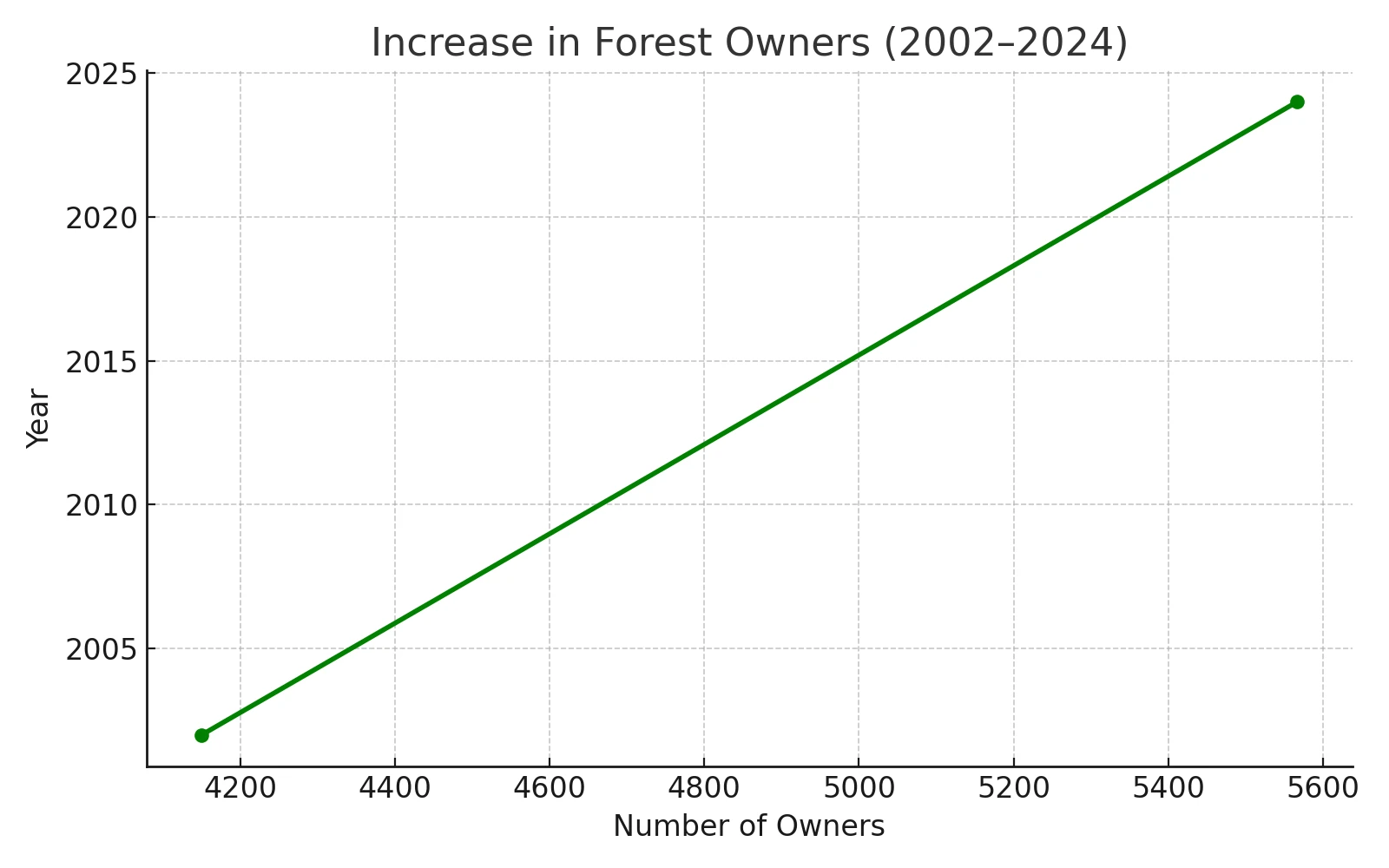
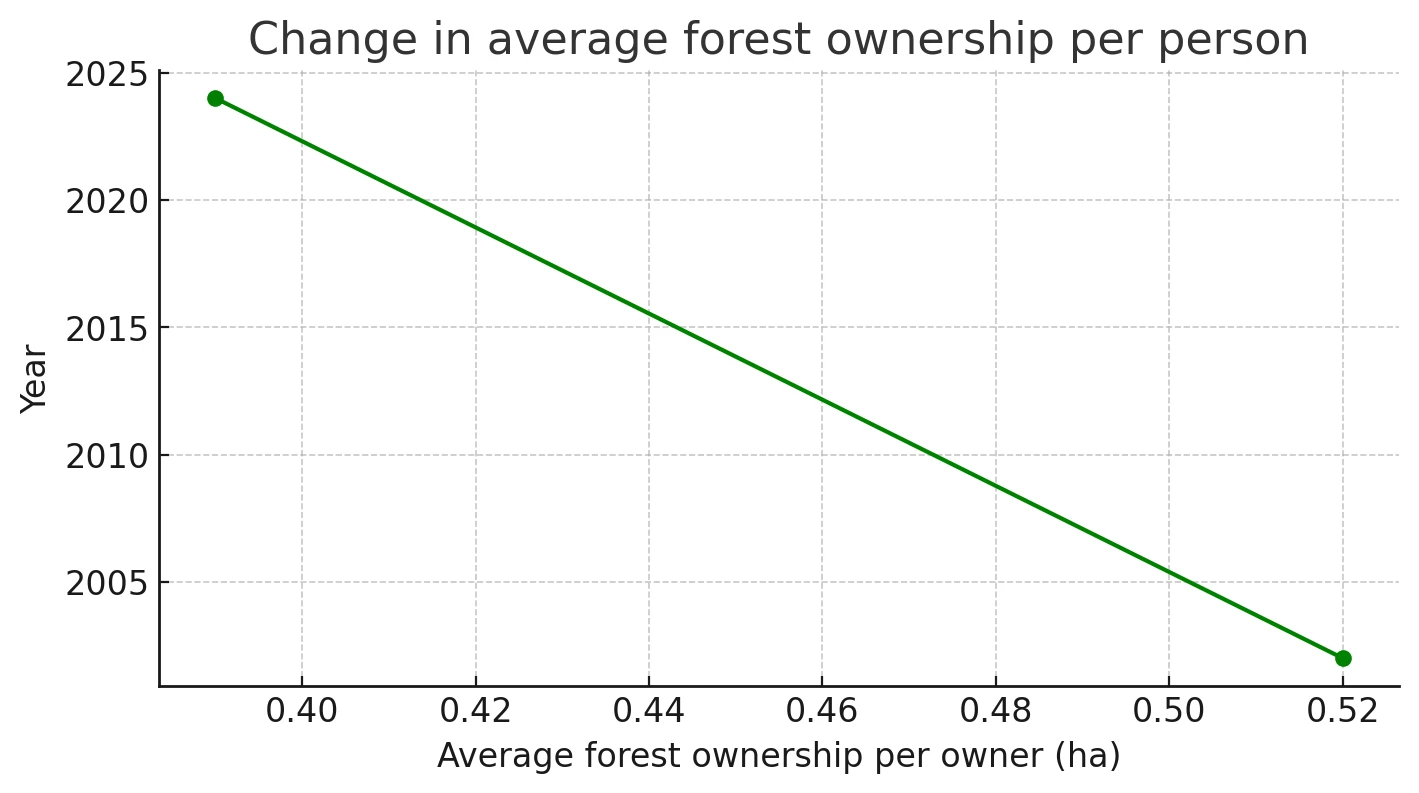
Европейска конференция в Рим
European Conference on Small Forests in Rome
The first European Conference on Small Forests, held from 20 to 22 May 2025 at FAO headquarters in Rome, brought together over 200 key stakeholders from across Europe, including public institutions, private organizations, non-governmental organizations and many forest owners’ associations.The three-day programme included presentations, panel discussions, technical sessions, networking opportunities and hands-on training at the Castelporziano estate, an Italian state nature reserve.Topics covered by the conference included the state of small forest holdings in Europe, legal and financial support mechanisms, forest owner engagement, forest value chains and markets for ecosystem services. These topics were addressed through in-depth discussions held in nine sessions, which also addressed key issues such as forest land abandonment, low profitability and fragmentation.The event highlighted the role of forest owner organisations in strengthening local value chains and advancing sustainable forest management across the EU. During the practical visit to Castelporziano, participants had the opportunity to meet representatives of 35 organisations selected in the first call for funding under the SMURF cascade project, to network and enjoy a pleasant exchange in an informal setting.This conference was an important step in building stronger cooperation within the European forestry community and demonstrated the key role that small forest owners play in creating a sustainable and inclusive future for European forests. The SMURF project will continue to work in support of this goal.The National Forest Owners Association of Bulgaria participated in this conference as a representative of private forest owners in Bulgaria and as a beneficiary of the SMURF project. We believe that the participation of a representative of the Association in such a large forum at such a high level is an opportunity to exchange experiences with colleagues from many European countries. To understand what their problems are in managing private forests and what their proposals are for dealing with them. And to share our problems and experiences.The conference was held in a special place at the FAO headquarters in Rome and, in addition to representatives from various forest associations, it was also attended by representatives of the European Commission, representatives of ministries, representatives of the European Forestry Institute and many university professors. This shows the desire of these institutions to solve the challenges in forest management.At the end of the event, conclusions were formulated from the sessions and presentations held in this way, which will soon be published on the SMURF project website https://www.smurfproject.eu/.Funded by EU ![]()
![]()
![]()
![]()
![]()
![]() #smurfproject #SmallForestHoldings #forestry #forestowners #profitability #smallforestowners #foresteufuture #forestmanagement #sustainability #forestnews #cascadefunding #closetonaturesilvicultureSee translation
#smurfproject #SmallForestHoldings #forestry #forestowners #profitability #smallforestowners #foresteufuture #forestmanagement #sustainability #forestnews #cascadefunding #closetonaturesilvicultureSee translation
"Forest All-Around" Competition
In May 2025, the National Association of Owners of Non-State Forests "Gorovladelets" sponsored the "Forest All-Around" competition. It is held regularly among all schools where future forest specialists are trained. For us, the good preparation of future foresters is of great importance, since after they graduate they will be part of the professionals practicing in our forests.
In the period 28–30 April 2025, the PG under the SGST "Nikola Vaptsarov" in the city of Chepelare hosted the National Competition "Forest All-Around" 2025 - an event in which, in an absolutely professional environment, in a sports competition, enviable knowledge of various forestry disciplines, mental resilience and stable physical training are shown. The competition was held in the city of Chepelare, where the headquarters of our Association is also located. This was the 17th edition of the National Competition "Forest All-Around". This was the most significant professional competition for students studying in the "Forestry" vocational field from vocational high schools in Bulgaria! The competition meets the needs of the time and places the participants in an attractive learning environment, transforming them from students into competitive specialists. 11 PGs from the country participated:
PGZS "A. Stamboliyski" village Chomakovtsi, PGSS "Geo Milev" town Maglizh, PGGSD "N. Haitov" town Varna, PGSSGS town Kardzhali, LPGG town Berkovitsa, NPGSS "Hr. Botev" town Velingrad, PLTG "N. Vaptsarov" town Bansko, PGGSD "St. Bozhkov" town Batak, PGDS "Tsar Ivan Asen II" town Haskovo, NPGGSD "S. Mladenov" town Teteven and PGSGST "Nikola Y. Vaptsarov" Chepelare.
The competition took place in two stages:
The first stage of the competition consists of running a route with a length of 2000 m. over rough terrain, including points in the individual disciplines:
Point I: Recognition of coniferous and deciduous species, wood, footsteps, traces of game, diseases and pests;
Point II: Sport fishing;
Point III: Planting saplings;
Point IV: Shooting with an air rifle.
The second stage of the competition includes:
Point I: Felling, pruning, cutting and cube cutting of coniferous trees;
Point II: Preparing a gasoline-powered chainsaw for work;
Point III: Combined cutting of discs.
After the final, the awards were presented to the best young foresters in the country. Participants, committees, guests and hosts were present.
All participants received certificates and prizes from the host school and the Executive Forestry Agency in recognition of their work and ambition.
www.smurfproject.eu Funded by EU
#smurfproject #SmallForestHoldings #forestry #forestowners #profitability #smallforestowners #foresteufuture #forestmanagement #sustainability #forestnews #cascadefunding #closetonaturesilviculture
SMURF - the project aimed at small forest owners and their representative associations
No one knows the number of forest owners and forest holdings in Europe. It could be more than 20 million people, and in many countries there are strong structural barriers to forest management and investment in forests, such as the lack of an up-to-date cadastre or clear ownership documents.
The SMURF project defends the right of the forest owner to decide on the objectives and management systems to be applied in his own forests.
The SMURF project aims to create a European network of small forest holdings. The aim is to encompass the diversity of forest associations and cooperatives and to use their experience to support small forest holdings.
Forestry in Europe aims to be multifunctional, integrating a variety of societal requirements, such as biodiversity conservation, climate change mitigation and adaptation or the production of clean water and cultural services such as recreation or human health.
SMURF – the Forest Owners Project will help create value in the forest sector by ensuring sustainable and profitable management and business models, a standardised payment system for ecosystem services and will provide a support and training structure for small forest holdings.
Socio-economic changes in forest ownership in Europe, combined with the threats of climate change and other changes such as the process of urbanisation, agricultural intensification and others, are leading to land abandonment, fragmentation of forest holdings, forest decay, increased fire risk, loss of forest habitats and a reduction in many ecosystem services including carbon sequestration, wood production, recreation and biodiversity conservation.
Over the last 60 years, European farms have undergone a profound transformation, with clear improvements in structures, new business models and more, clearly guided by the Common Agricultural Policy. European forest holdings have not yet undergone such a transformation and there are large differences between public and private forest holdings. The situation of small forest holdings (SHFs) is particularly precarious, given the lack of forest holding registers in many European regions.
The problem of farm fragmentation has been clearly addressed for decades to overcome barriers to agricultural modernization, but the serious problem of forest fragmentation and unclear ownership has not been addressed in many countries and is a major obstacle to sustainable forest management.
The Forest Owner Association was approved under the SMURF project together with 37 other associations and associations of forest owners from 16 European countries. The SMURF project provides us with a basis for comparing the situation of small forest holdings in Europe.
SMURF_CF1_03 Association of small forest land's owners from Umbrías Spain
SMURF_CF1_06 Forest Owners Association: Mountain Boards of Asturias Spain
SMURF_CF1_08 Forest Owners Association VORTANA Romania
SMURF_CF1_09 Forest Owners Association - STEJARUL TOPOLOVENI Romania
SMURF_CF1_10 Romanian Forest Owners Association- Romania
SMURF_CF1_11 Association of Traditional and Environmental
Agricultural Producers Portugal
SMURF_CF1_12 Baixo Vouga Forestry Association Portugal
SMURF_CF1_13 AguiarFloresta Portugal
SMURF_CF1_14 Montnegre-Corredor Forest Owners Association Spain
SMURF_CF1_15 Laye-Lauzon Forest Management Association France
SMURF_CF1_19 Land Association Spring Valleys Italy
SMURF_CF1_22 National Center for Private Forest Ownership France
SMURF_CF1_23 Ocejon community of forest owners Spain
SMURF_CF1_25 Forestry Consortium "Gulf Corkwoods" Italy
SMURF_CF1_26 Ticino river forestry consortium Italy
SMURF_CF1_27 Forestry Consortium of Villa Basilica Italy
SMURF_CF1_28 De Bosgroepen Belgium
SMURF_CF1_30 Departmental federation of forestry groups of Hérault France
SMURF_CF1_31 Fenafloresta - National Federation of Forest Producers' Cooperatives, FCRL Portugal
SMURF_CF1_33 The non-profit association for commercially sustainable multi-use of forests Sweden
SMURF_CF1_35 FORESTIERS D'ALSACE France
SMURF_CF1_37 Holzcluster Steiermark GmbH Austria
SMURF_CF1_38 Croatian Union of Private Forest Owners Associations Croatia
SMURF_CF1_39 Irish Wood Producers Ireland
SMURF_CF1_40 Irish Woodland Owners Co-operative Society Ltd Ireland
SMURF_CF1_41 Rural Flanders Belgium
SMURF_CF1_42 Latvian Forest Owners' Association Latvia
SMURF_CF1_43 Model Forest Istria Croatia
SMURF_CF1_45 Pozemkové spoločenstvo komposesorátu a Urbariátu Šalková Slovakia
SMURF_CF1_46 Association of private forest owners Lithuania
SMURF_CF1_47 NTF- Rural Landowners of Wallonia Belgium
SMURF_CF1_48 Royal Forestry Society of Belgium Belgium
SMURF_CF1_50 Forest Association Styria Austria
SMURF_CF1_51 Association of Owners of Community and Private Forests of the Banská Bystrica Region Slovakia
SMURF_CF1_52 Asotiation of Slovenian Forest Owners Slovenia
SMURF_CF1_54 WESTERN MACEDONIA MODEL FOREST Greece
SMURF_CF1_55 National Association of Owners of Private Forests "Gorovladeletz" Bulgaria
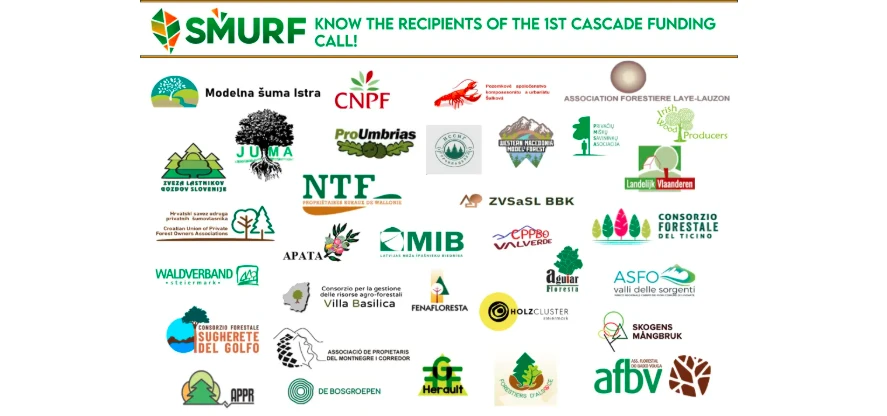
Our story
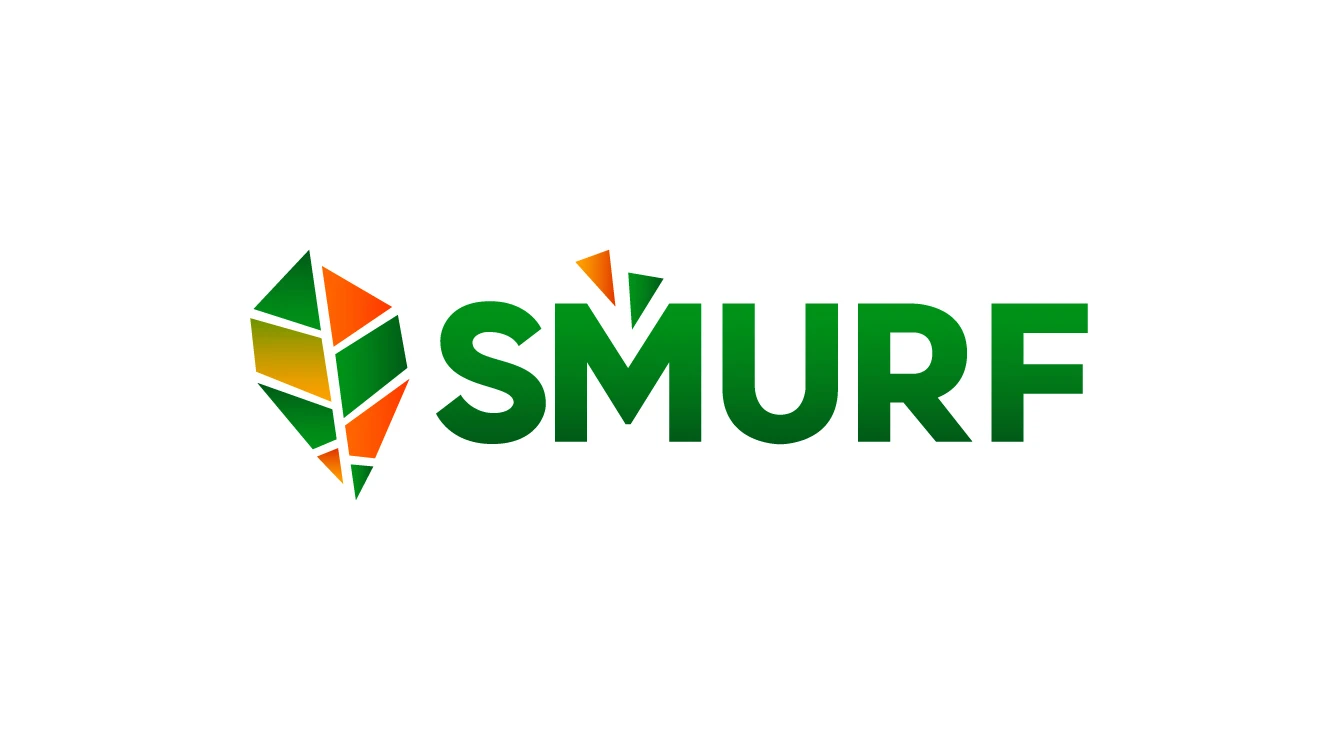
The National Association of Private Forest Owners “Gorovladelets” began its activities in 2002. It was established following the restitution of forests and the reactivation of forest cooperatives and associations after 2001. These entities are the successors of those that existed prior to 1945.According to its founding statute, the main goal of the Association is to protect the interests of forest owners and their representatives. It also aims to collaborate with governmental and non-governmental organizations and institutions, parliamentary committees, and similar bodies, both nationally and internationally, for the development and implementation of regulations and decisions governing the management and stewardship of private forests.Our Association is a voluntary union of individuals and legal entities. It is a non-profit legal entity established to carry out activities of public benefit.The fundamental principles guiding all our work are: 1. Voluntary membership; 2. Election and term limits for governing bodies; 3. Periodic accountability of governing bodies; 4. Transparency of decisions and all activities of the Association; 5. Political and trade union independence.Our primary members are forest cooperatives and associations that represent tens of thousands of forest owners possessing undivided shares of forest land. We also include individual private forest owners among our members.The Association is primarily used as a platform for exchanging information, experience, and best practices among its members. It cooperates with local authorities and organizations to support initiatives and decisions related to private forests and their use. It participates in national and international programs, councils, projects, and initiatives in the field of private forests and their sustainable development, ecology, integrated nature-based and multifunctional forest management, and fostering ecological awareness among forest owners.The Association maintains contacts with national and international non-governmental organizations focused on forestry and environmental goals. It also takes part in and supports the development and implementation of legislation and decisions concerning the structure, management, use, and sustainable development and protection of private forests at all possible levels.Since its inception, a representative of the Association has regularly participated in the drafting of the Forest Act and its subordinate regulations, as well as in subsequent amendments over the years. The Association has also been actively involved in the National Forest Council under the Ministry of Agriculture and Food.
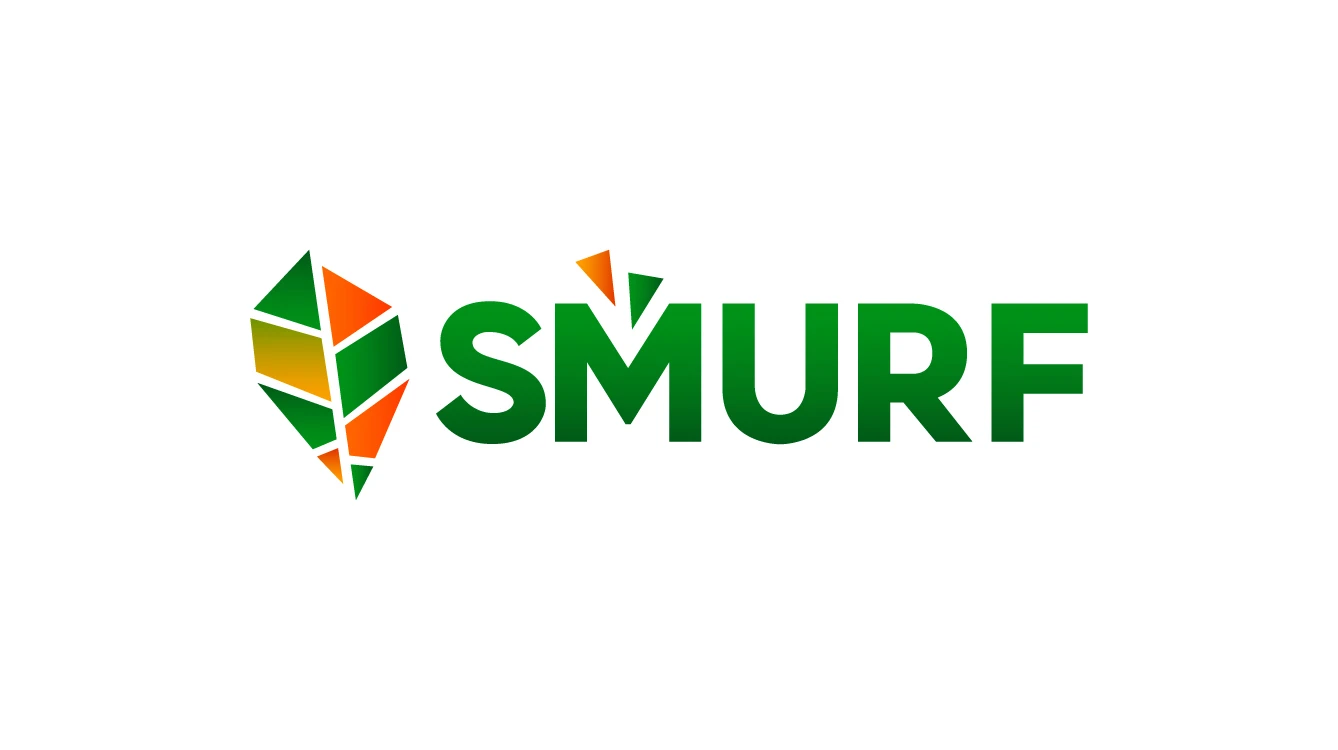
100 years "Week of the forest"
The Forestry Guild celebrates its “Forest Week” holiday every year in the first full week of April. This year marks the 100th anniversary of its first celebration, although the work to restore, manage and protect Bulgarian forests began immediately after the Liberation in 1878. The newly established state initially created security units of foot and horse forest guards from local administrations. A year later, on July 5, 1879, an independent “Forest Supervision” sector was established within the Department of State Property and Ore of the Ministry of Finance, marking the beginning of the state forestry service in Bulgaria.
Read more here: https://sedmicanagorata.eu/
In early 2025, NAOPF"Gorovladelets" was approved as a beneficiary under the SMURF project
The aim of the project is to create a community of associations and organizations similar to the Forest Owner Association. Over 30 organizations have been approved by the EU. Organizations representing small forest owners with the aim of exchanging experience and good management practices. se
From 20 to 22 May, the first European Conference on Small Forests will be held in Rome.
Organized by the Cesefor Foundation and co-organized by the University of Florence on behalf of the SMURF consortium, jointly by the Food and Agriculture Organization of the United Nations (FAO) and the European Forestry Institute (EFI). Funded by the European Commission and supported by the Italian Ministry of Agriculture, Food Sovereignty and Forests (MASAF) and the Spanish Ministry of the Ecological Transition and the Demographic Challenge (MITECO).
This 3-day event is a unique opportunity to engage with private, public and municipal forest owners, forest owners' associations and cooperatives, national and regional forest authorities, forest enterprises, professionals and researchers, NGOs and all stakeholders involved in small forest holdings (SFH) in Europe.
You can read more about the project here: https://www.smurfproject.eu/
Forest interventions in 2025
През 2025 г. в индикативен годишен график за планираните приеми за 2025 г. са включени две горски интервенции
- II.Г.10 – Залесяване ивъзстановяване и ІІ.Г.11 - Предотвратяване на щети по горите от горски пожари, природни бедствия и катастрофични събития.
On November 7 and 8, the autumn meeting between the members of the Association was held in the town of Strelcha
In addition to members of the Association, the event was also attended by a representative of the Ministry of Agriculture and Food. The main topic of the meeting was the upcoming launch of forest interventions according to the SPRZSR 2023 - 2027.
